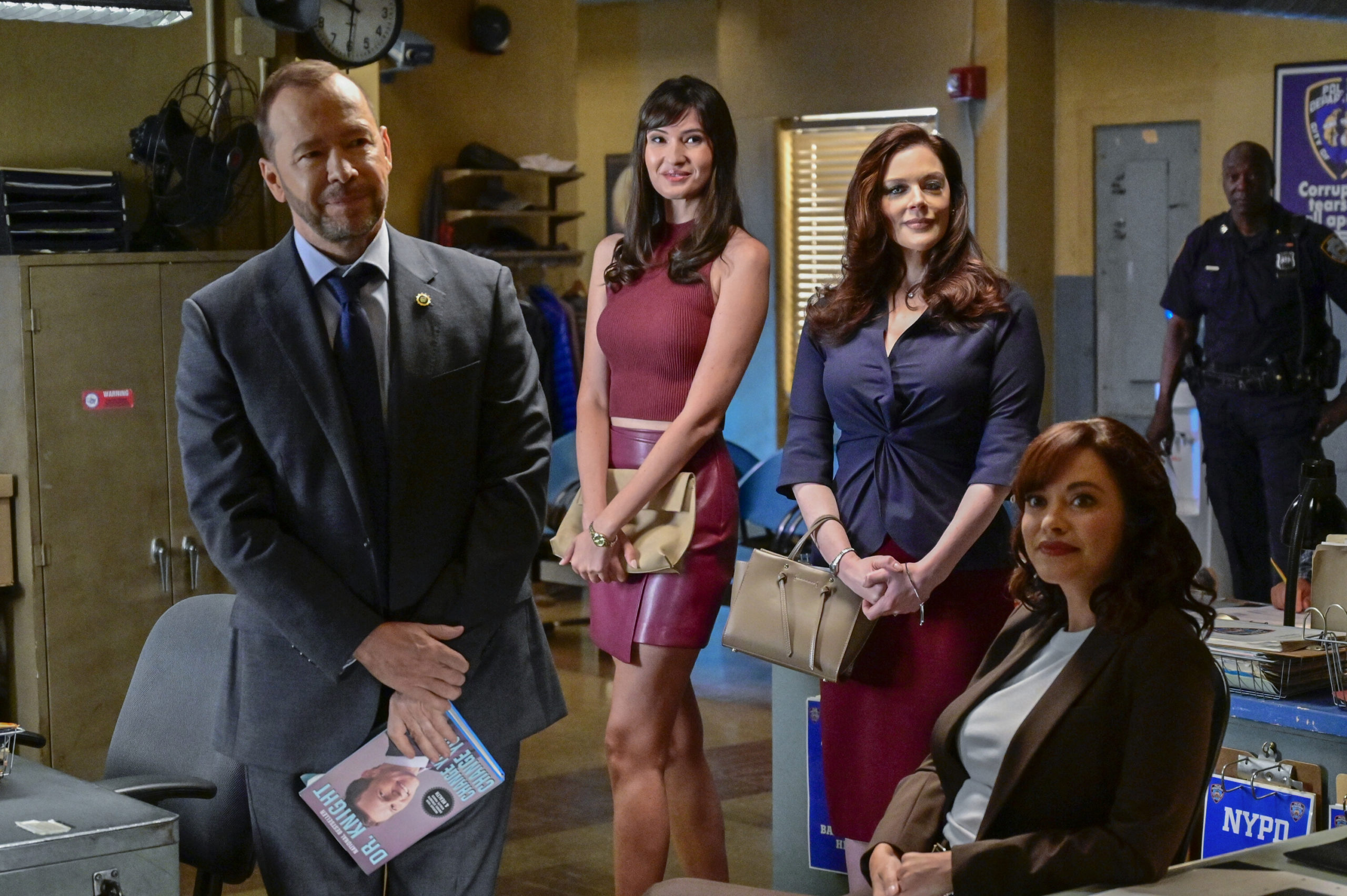Are your favorite CBS shows on the chopping block? The network's recent wave of cancellations has left viewers reeling, sparking outrage and uncertainty about the future of prime-time television.
The television landscape is constantly shifting, and no network has been immune to the recent shakeups. CBS, once a bastion of stability and long-running series, has made some difficult decisions lately, leaving fans wondering what the future holds. Several shows, including some beloved staples, have been axed, while others hang in the balance, awaiting renewal or cancellation. The network's fall schedule for 2025 is looming, and the pressure is on to make the right calls to keep viewers engaged and ratings high. This year's cancellation bloodbath has been particularly harsh for shows on CBS, on top of some ending due to planned series finales.
| Category | Information |
|---|---|
| Network | CBS |
| Focus | CBS TV Shows: Cancellation and Renewal Status |
| Date of Update | July 1, 2011 (based on provided context, for historical reference) |
| Key Shows Mentioned | FBI: International, FBI: Most Wanted, S.W.A.T., Blue Bloods |
| Cancellation Trends | CBS making "brutal decisions," cancelling shows despite fan following. |
| Fan Reaction | Disappointment, venting on social media regarding show cancellations (especially S.W.A.T.). |
| Future Outlook | Renewal decisions underway; CBS expected to announce more cancellations; Fall TV 2025 schedule in development. |
| Reference | CBS Official Website |
The sting of cancellation is nothing new to television viewers, but the recent round of cuts at CBS has felt particularly brutal. The network, known for its procedural dramas and reliable sitcoms, has surprised many with its willingness to wield the axe. This year, several big name television shows have been axed as the current season draws to a close, which means CBS viewers are getting their final fix before the network firms up their fall schedule. This has left fans feeling betrayed and questioning the network's priorities. The departure of beloved shows often leaves a void in the primetime lineup, and viewers are left to search for new favorites or mourn the loss of characters and stories they've come to cherish. In May, the network aired the series finale for beloved sitcom and will later this year say goodbye to the reagans when blue bloods. The cancellation of some shows highlights the harsh realities of the television industry, where ratings and profitability often outweigh creative merit and fan loyalty. As viewing habits continue to evolve, networks face increasing pressure to adapt and compete, which can lead to difficult decisions about which shows to keep and which to let go. However, the way in which these decisions are communicated and handled can have a significant impact on the relationship between the network and its viewers.
- School Shock Bioengineered Vanguards A Teens Fight
- Dry Skin Savior Best Setting Powders Of 2024 Beauty Editors Pick
One of the most vocal fan bases affected by the recent CBS cancellations is that of "S.W.A.T." The action-packed police procedural has garnered a loyal following over its several seasons on the air, and news of its potential demise sparked immediate outrage. Fans took to social media to express their disappointment and frustration, using hashtags and online petitions to plead with the network to reconsider. The passion and dedication of the "S.W.A.T." fan base highlight the deep connection that viewers can develop with their favorite shows. For many, television is more than just entertainment; it's a source of comfort, community, and shared experience. When a beloved show is canceled, it can feel like a personal loss, and fans are often driven to take action to try to save it. The uproar surrounding "S.W.A.T." is a testament to the power of fandom and the ability of viewers to mobilize and make their voices heard. "Hey @cbs stop messing with @swatcbs every time you want to clear schedule you cancel the show and the fans fight to" one fan wrote, encapsulating the frustration felt by many. This type of direct engagement with the network reflects a changing dynamic in the television industry, where viewers are no longer passive consumers but active participants in the decision-making process.
The "FBI" franchise has also been impacted by the recent changes at CBS. "FBI: International" is ending after 4 seasons, while "FBI: Most Wanted" had 6. These shows, which are known for their high-stakes storylines and compelling characters, have been reliable performers for the network. Their cancellation marks a significant shift in CBS's programming strategy and raises questions about the future of the franchise as a whole. The success of the "FBI" franchise is rooted in its ability to tap into current events and deliver gripping stories that resonate with viewers. The shows often explore complex issues related to crime, terrorism, and national security, providing a glimpse into the world of law enforcement and intelligence. The cancellation of "FBI: International" and "FBI: Most Wanted" could be seen as a reflection of changing audience tastes or a desire on the part of the network to explore new genres and formats. However, it also represents a loss for fans who have come to rely on these shows for their weekly dose of action and drama. The other four canceled shows are coming to an end after longer stints on cbs, these cancellations leave a noticeable gap in the network's lineup.
Beyond the specific shows that have been canceled, the recent shakeups at CBS raise broader questions about the future of network television. With the rise of streaming services and on-demand content, traditional networks face increasing competition for viewers' attention. The need to adapt to changing viewing habits has led to a greater emphasis on original programming and innovative formats. However, it has also resulted in a willingness to take risks and make difficult decisions about which shows to keep and which to cancel. The cancellation of fan favorites highlights the challenges that networks face in balancing creative vision with financial realities. While some shows may be critically acclaimed or have a dedicated fan base, they may not generate the ratings or revenue necessary to justify their continued production. In these cases, networks must weigh the potential backlash from viewers against the need to make sound business decisions. This delicate balancing act is becoming increasingly complex in the current media landscape, where viewers have more choices than ever before.
- Oitnb The Untold Truth About Blanca Flores What Happened
- Dreaming Of Mothers Death What Does It Really Mean
Renewal decisions are still underway, and the full schedule has not yet been officially finalized by the network. When cbs renewed nine shows, it came with worries for a few on the bubble. Since then, a number of the bubble shows have been canceled and another was renewed for a final season. This uncertainty creates a sense of unease among fans and industry insiders alike, as everyone waits to see which shows will survive and which will be relegated to the television graveyard. The renewal process is often shrouded in secrecy, with networks closely guarding their plans until the official announcements are made. This can lead to speculation and rumors, as fans try to decipher the tea leaves and predict the fate of their favorite shows. The stress and anxiety surrounding renewal decisions are a common part of the television industry, and they highlight the high stakes involved in creating and maintaining a successful show. The pressure to perform and attract viewers is immense, and the consequences of failure can be devastating. Despite the challenges, the renewal process also offers an opportunity for networks to reaffirm their commitment to quality programming and reward the shows that have resonated with audiences.
The decision-making process behind television cancellations is often complex and multifaceted. Networks consider a wide range of factors, including ratings, demographics, critical reception, and production costs. They also take into account the overall programming strategy and the need to attract advertisers. In some cases, shows are canceled due to declining ratings or a lack of audience interest. In other cases, they may be victims of budget cuts or a shift in the network's focus. The cancellation of a show can also be influenced by behind-the-scenes factors, such as conflicts between producers and actors or creative differences within the production team. Regardless of the specific reasons, the cancellation of a show is never an easy decision, and it often has a ripple effect throughout the industry. Cast and crew members lose their jobs, writers and producers must find new projects, and fans are left to mourn the loss of a beloved series. The impact of cancellation extends beyond the immediate financial and creative consequences, affecting the emotional well-being of those involved and the overall cultural landscape.
While some shows ended due to completed storylines, others were fan favorites, sparking disappointment. This dichotomy highlights the challenges that networks face in satisfying both creative ambitions and audience expectations. Some shows are designed to have a limited run, with a clear beginning, middle, and end. These shows often tell a complete story arc and provide closure for viewers. However, other shows are conceived as ongoing series, with the potential to run for many seasons. When these shows are canceled prematurely, it can leave fans feeling cheated and unfulfilled. The disappointment is often amplified when the show has a strong fan base and critical acclaim. In these cases, viewers may feel that the network has made a mistake and that the show deserved a longer run. The tension between creative vision and audience expectations is a constant theme in the television industry, and it often leads to difficult decisions about which shows to renew and which to cancel.
The cancellation of CBS shows has also sparked discussions about the changing role of network television in the digital age. With the rise of streaming services and on-demand content, traditional networks are no longer the gatekeepers of entertainment. Viewers have access to a vast array of programming options, and they are increasingly choosing to watch what they want, when they want. This shift in viewing habits has forced networks to adapt and innovate, experimenting with new formats and delivery methods. Some networks have launched their own streaming services, while others have partnered with existing platforms to offer their content online. The future of network television is uncertain, but it is clear that the traditional model is no longer sustainable. Networks must find new ways to engage viewers and compete with the growing number of streaming options. This may involve creating more original programming, offering more flexible viewing options, or focusing on niche audiences. The challenges facing network television are significant, but they also present opportunities for creativity and innovation.
CBS will undoubtedly cancel more shows, this is the reality of the television industry. The network is constantly evaluating its programming lineup and making decisions based on ratings, demographics, and financial considerations. While it is impossible to predict which shows will be canceled in the future, it is likely that the network will continue to prioritize shows that attract a large audience and generate significant revenue. The cancellation of shows is a necessary part of the television ecosystem, as it allows networks to make room for new programming and adapt to changing viewer preferences. However, it is important for networks to communicate their decisions clearly and respectfully, and to acknowledge the impact that cancellations have on fans and industry professionals. The way in which networks handle cancellations can have a significant impact on their reputation and their relationship with viewers. By being transparent and empathetic, networks can mitigate the negative effects of cancellations and maintain the loyalty of their audience.
Here's your fall tv 2025 schedule lineup is highly anticipated every year, and the announcements regarding renewals and cancellations are closely watched by fans and industry insiders. The fall schedule represents a fresh start for networks, as they unveil their new programming lineup and try to capture the attention of viewers. The fall schedule is also a crucial time for advertisers, who invest heavily in television advertising during the peak viewing season. The success or failure of a network's fall schedule can have a significant impact on its financial performance and its overall standing in the industry. The fall schedule is a culmination of months of planning and preparation, and it represents the network's best effort to deliver compelling and engaging programming to viewers. The fall schedule is also a reflection of the network's overall strategy and its vision for the future of television. The announcements regarding renewals and cancellations are an integral part of the fall schedule rollout, as they provide viewers with clarity about the fate of their favorite shows and the direction of the network.
This is the status for the abc, cbs, fox, nbc, and the cw shows renewed, canceled, in limbo, plus new shows. The television landscape is constantly evolving, with new shows premiering and old shows ending all the time. The major networks, including ABC, CBS, Fox, NBC, and The CW, are constantly vying for viewers' attention and market share. The status of each network's shows is closely watched by industry insiders and fans alike, as it provides insights into the health and direction of the network. The renewal and cancellation decisions made by these networks have a significant impact on the television industry as a whole, shaping the programming landscape and influencing viewing habits. The competition among these networks is fierce, and the stakes are high, as each network strives to create and maintain a successful lineup of shows. The status of each network's shows is a reflection of its overall performance and its ability to adapt to the changing demands of the television industry. The renewal and cancellation decisions are often difficult and complex, requiring careful consideration of a wide range of factors, including ratings, demographics, critical reception, and financial considerations.
CBS has made a series of brutal decisions over beloved tv shows this year, with many on the chopping block and several confirmed to have been canceled. From swat to the fbi franchise, and sitcoms, no genre seems safe from the network's axe. These decisions have left fans reeling and questioning the future of their favorite shows. The cancellations have also sparked discussions about the changing landscape of network television, with many wondering if the traditional model is still sustainable in the face of streaming services and on-demand content. The network's decisions have been met with a mix of disappointment, anger, and resignation, as viewers come to terms with the loss of characters and stories they've come to cherish. The cancellations have also raised questions about the network's priorities, with some accusing CBS of prioritizing profits over quality programming. The debate over the cancellations is likely to continue for some time, as fans and industry insiders alike grapple with the implications of these decisions.
Cancelled or renewed cbs tv shows updated 07/11 july 1, 2011 previous post, indicates the constant flux and evolution within network television. This update, though dated, highlights the ongoing cycle of creation, evaluation, and decision-making that shapes the programming landscape. Shows are perpetually being assessed for their performance, leading to renewals for successful series and cancellations for those that don't meet expectations. The "previous post" reference suggests a continuing narrative of updates and announcements, reflecting the dynamic nature of the industry. Even a seemingly old update provides a glimpse into the historical context of network television and the factors that influence its decisions. The constant evaluation and adjustment of programming lineups are essential for networks to remain competitive and relevant in the ever-changing media environment. The update serves as a reminder that the status of television shows is never guaranteed and that fans must always be prepared for the possibility of cancellation.
- Emani Asghedom Nipsey Hussles Daughter Custody Legacy
- Star Tattoo Meaning Designs Symbolism Placement Ideas


